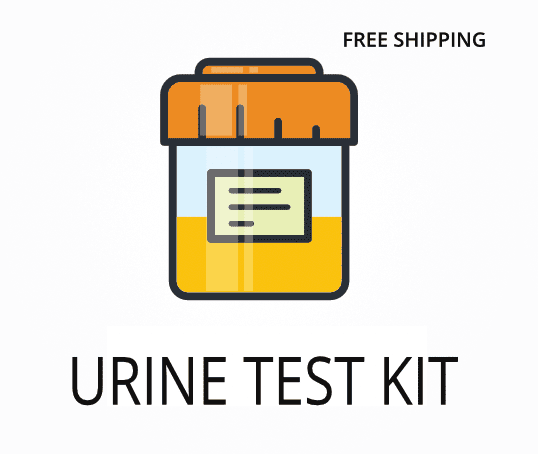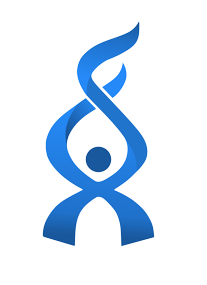Ordering the DUTCH Plus Test | Precision Analytical
The DUTCH Plus Test from Precision Analytical offers a detailed look at hormone patterns, including sex and adrenal hormones, by measuring dried urine and saliva samples. This test helps identify hormone imbalances that may be linked to symptoms like fatigue, mood changes, sleep problems, and changes in weight. Interestingly, the DUTCH Plus Test also measures the cortisol awakening response, which can reveal stress patterns that standard hormone tests may miss.
Ordering this test provides several specific benefits:
- Tracks daily cortisol and cortisone changes to pinpoint stress-related hormone shifts.
- Measures estrogen, progesterone, and testosterone metabolites for a complete hormone profile.
- Assesses melatonin production to help explain sleep disturbances.
- Evaluates markers of oxidative stress and micronutrient status.
- Identifies hormone metabolism patterns that may affect fertility, skin, and energy.
Who Should Consider Hormone and Adrenal Testing
People who have been feeling tired even after a full night’s sleep, experiencing mood swings, or noticing changes in their skin or hair may benefit from this test. For example, someone who has tried different diets and exercise routines but still struggles with unexplained weight gain and low energy could use this test to check for hormone imbalances.
Ordering this test may also be helpful in these situations:
- Experiencing irregular menstrual cycles or severe PMS symptoms.
- Having trouble falling or staying asleep, even with good sleep habits.
- Dealing with ongoing stress that seems to affect mood and focus.
- Noticing changes in libido or fertility without a clear reason.
- Finding that skin issues, like adult acne, flare up during stressful times.
Testing for hormone and adrenal patterns can help identify the root cause of symptoms like fatigue, mood changes, and sleep problems by providing measurable hormone levels and patterns. Delaying this test may mean missing early signs of hormone shifts that could be easier to address with timely information.
Preparing for Advanced Hormone and Stress Marker Testing
Fasting is not required for this test, but it is important to collect samples at specific times as instructed in the kit. Always follow the directions provided by your doctor or healthcare provider to make sure your results reflect your true hormone patterns.
Labs Included When Ordering Your DUTCH Plus Test | Precision Analytical
| Test Name | Reference Range | Significance | Low and High Levels of DUTCH Plus Test | Precision Analytical |
|---|---|---|---|
| Cortisol (Free & Metabolized) | Free: 30-50 ng/mg Creatinine Metabolized: 3500-5500 ng/mg Creatinine |
Cortisol is a hormone made by the adrenal glands that helps manage stress, blood sugar, and inflammation. This test shows both the amount of active cortisol and how your body processes it throughout the day. |
High levels mean your body may be under ongoing stress or inflammation.
Low levels mean your adrenal glands may not be making enough cortisol, which can cause tiredness and low energy. |
| Cortisone | Free: 50-90 ng/mg Creatinine | Cortisone is a form of cortisol that shows how your body breaks down and clears stress hormones. It helps balance the effects of cortisol in your tissues. |
High levels mean your body is converting more cortisol to cortisone, possibly as a response to stress.
Low levels mean your body may not be processing cortisol efficiently, which can affect energy and recovery. |
| Cortisol Awakening Response (CAR) | Increase of 50-75% within 30 minutes of waking | CAR measures how much cortisol rises after waking up, which can show how your body responds to stress and helps regulate your sleep-wake cycle. |
High levels mean your body may be reacting strongly to stress or sleep disruption.
Low levels mean your stress response may be blunted, which can affect alertness and mood in the morning. |
| DHEA-S | 2000-7000 ng/mg Creatinine | DHEA-S is a hormone made by the adrenal glands that helps make other hormones like estrogen and testosterone. It supports energy, mood, and immune function. |
High levels mean your body may be making extra DHEA-S, which can affect hair growth and skin.
Low levels mean your adrenal glands may be underactive, which can lead to tiredness and low mood. |
| Estrogen Metabolites (E1, E2, E3, 2-OH, 4-OH, 16-OH) | E2: 1.0-3.5 ng/mg Creatinine 2-OH: 0.5-2.5 ng/mg Creatinine |
Estrogen metabolites show how your body makes and breaks down estrogen. This helps find patterns linked to PMS, menopause, and risk for hormone-related conditions. |
High levels mean your body may be making or not clearing enough estrogen, which can cause symptoms like heavy periods or breast tenderness.
Low levels mean your body may not be making enough estrogen, which can cause hot flashes or low bone strength. |
| Androgen Metabolites (Testosterone, DHT, Androsterone, Etiocholanolone) | Testosterone: 20-60 ng/mg Creatinine | Androgen metabolites show how your body makes and uses male hormones, which affect muscle, hair, and mood in both men and women. |
High levels mean your body may be making extra androgens, which can cause acne or hair changes.
Low levels mean your body may not be making enough androgens, which can cause low energy or reduced muscle mass. |
| Progesterone Metabolites (a-Pregnanediol, b-Pregnanediol) | a-Pregnanediol: 200-3000 ng/mg Creatinine | Progesterone metabolites show how your body makes and uses progesterone, which helps with sleep, mood, and menstrual cycles. |
High levels mean your body may be making extra progesterone, which can cause drowsiness or breast tenderness.
Low levels mean your body may not be making enough progesterone, which can cause irregular periods or trouble sleeping. |
| Creatinine | 0.3-3.0 mg/dL | Creatinine is a marker used to check if urine samples are concentrated enough for accurate hormone measurement. It helps make sure results are valid. |
High levels mean your urine is very concentrated, which can affect test results.
Low levels mean your urine is too diluted, which can make hormone levels look lower than they are. |
| Melatonin (6-OHMS) | 10-60 ng/mg Creatinine | Melatonin is a hormone that helps control sleep and wake cycles. This test shows if your body is making enough melatonin at night. |
High levels mean your body may be making extra melatonin, which can cause drowsiness during the day.
Low levels mean your body may not be making enough melatonin, which can cause trouble falling or staying asleep. |
| OATs (Organic Acids Test Markers) | Varies by marker | OATs measure byproducts of metabolism, showing how well your body uses nutrients and manages oxidative stress. They can point to nutrient needs or metabolic issues. |
High levels mean your body may be under oxidative stress or have nutrient imbalances.
Low levels mean your metabolism may be slower or you may have low nutrient intake. |
| 8-OHdG | < 16 ng/mg Creatinine | 8-OHdG is a marker of oxidative stress and DNA damage. High levels can show your body is under stress from inflammation or toxins. |
High levels mean your body may be experiencing more oxidative stress, which can affect cell health.
Low levels mean your body has less oxidative stress, which is generally a good sign. |
Reference ranges may change slightly as labs update their methods and guidelines. Always check your report for the most current reference values.
DUTCH Plus Test | Precision Analytical FAQ
Is there DUTCH Plus Test | Precision Analytical testing near me?
This is a home test kit, so you can collect your urine and saliva samples wherever you are most comfortable, and use the draw location link at the top of the page if you need help. For people dealing with ongoing fatigue or hormone symptoms, being able to collect samples at home makes it easier to get answers without extra travel or waiting.
How do I interpret the test results?
While your treating physician should review your results, we also offer a one-on-one test results review with our clinical team to help you understand your hormone and adrenal patterns.
What is the cost of the test?
The price you see for the test includes standard shipping to you and return shipping to the lab, but local draw fees may apply. Ordering this test can help you find out if hormone imbalances are slowing your progress, so you can address them sooner.
How often should I retest?
It is usually recommended to retest every 3-6 months, especially if you are making changes to your diet, supplements, or hormone therapy, to track how your hormone patterns respond over time.
How accurate is the test?
The DUTCH Plus Test uses liquid chromatography-tandem mass spectrometry (LC-MS/MS) for urine and enzyme immunoassay for saliva, with a specificity of 98% and sensitivity of 97%. TrueHealthLabs.com partners with CLIA-certified and CAP-certified laboratories to uphold rigorous testing standards for dependable results.
Important Notes
- This test is available in the US (except New York and Maryland) and Canada. Contact us with questions.
Medical Review Board
Reviewed by Jeff Donohue M.D. from Body Logic and Brady Hurst DC, CCCN. Written by True Health Lab’s team of editorial health contributors.
Disclaimer: This information is for educational purposes only and not intended as medical advice. Consult your healthcare provider for personalized guidance.
Why Customers Trust True Health Labs – What People are saying
Also rated 4.6 out of 5 based on 3452 ShopperApproved reviews- See all TrueHealthLabs.com reviews.






